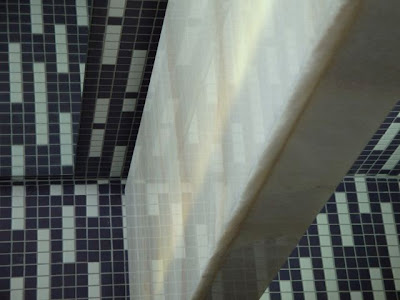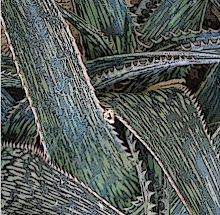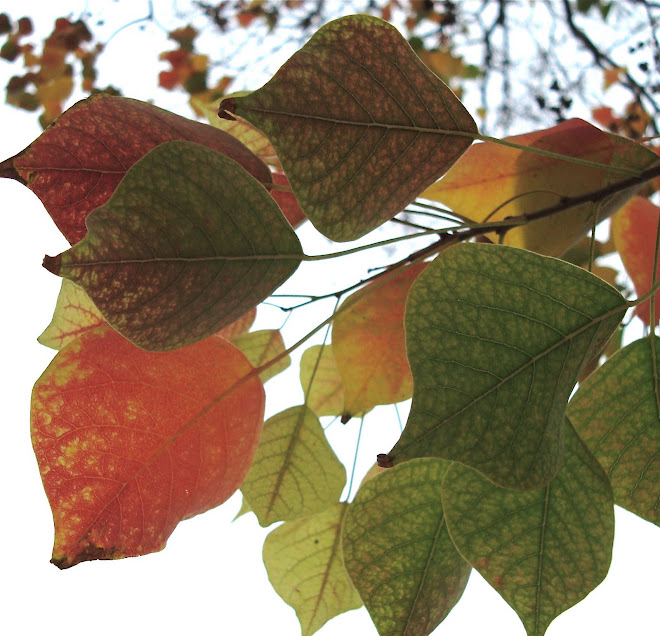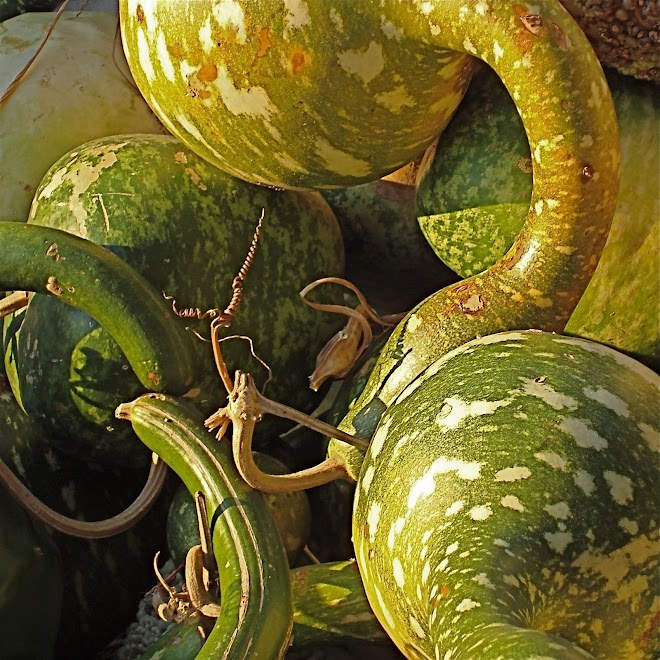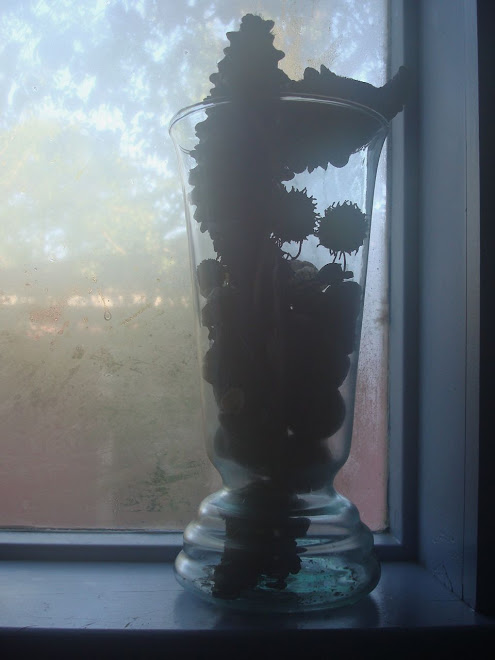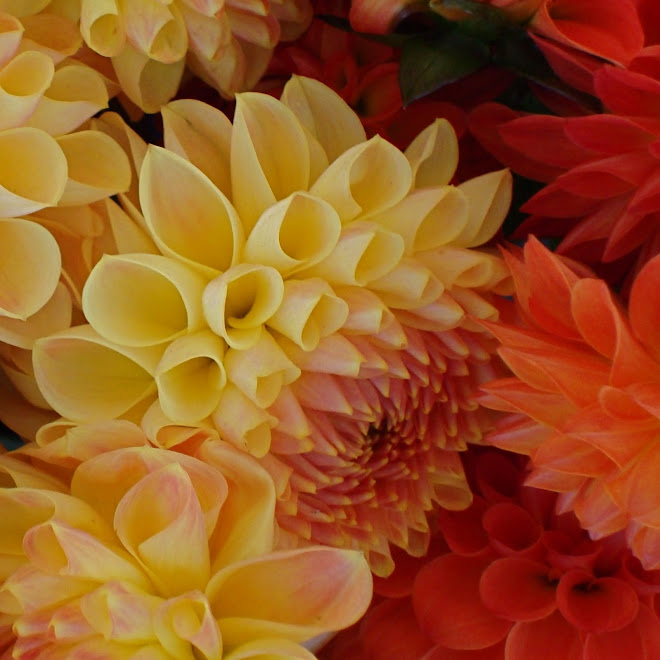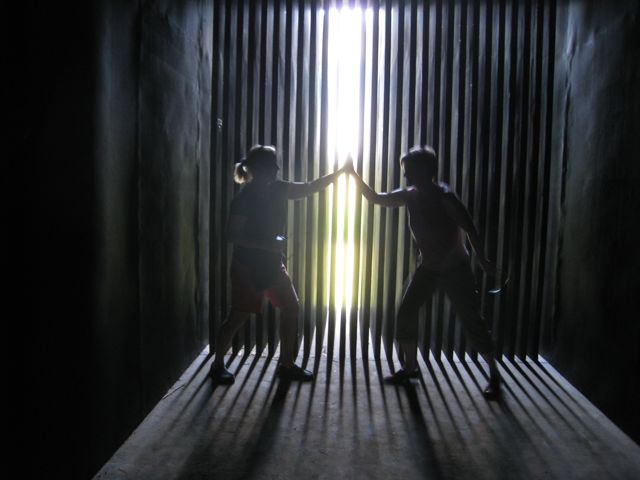
Tuesday, March 31, 2009
Monday, March 30, 2009
Sunday, March 29, 2009
Saturday, March 28, 2009
Friday, March 27, 2009
Thursday, March 26, 2009
Wednesday, March 25, 2009
Tuesday, March 24, 2009
Sunday, March 15, 2009
March 23, 2009
 The cardinals are building a nest. In addition to the tried and true stick/leaf combination, this pair has added an old plastic bag. They don't know what I know - plastic in a nest contributes to a lack of stability. The nest could be blown from the tree in a storm. Every spring I see lost eggs - and worse - hatchlings, because their nest included manmade materials. Should I pull out the plastic and monitor the yard for unsuitable bits of trash?
The cardinals are building a nest. In addition to the tried and true stick/leaf combination, this pair has added an old plastic bag. They don't know what I know - plastic in a nest contributes to a lack of stability. The nest could be blown from the tree in a storm. Every spring I see lost eggs - and worse - hatchlings, because their nest included manmade materials. Should I pull out the plastic and monitor the yard for unsuitable bits of trash? I feel a responsibility to these creatures who can't know the peril they're courting. Or is it a path I shouldn't travel? Am I meddling when I intervene with Nature? Or am I stewarding?
March 22, 2009

Nothing in the world
is as soft and yielding as water.
Yet for dissolving the hard and inflexible,
nothing can surpass it.
The soft overcomes the hard;
the gentle overcomes the rigid.
Everyone knows it is true,
but few can put it into practice.
Therefore the Master remains
serene in the midst of sorrow.
Evil cannot enter her heart.
Because she has given up helping,
she is the people's greatest help.
True words seem paradoxical.
Verse 78
Tao te Ching
Stephen Mitchell translation
March 21, 2009

Men are born soft and supple;
dead, they are stiff and hard.
Plants are born tender and pliant;
dead, they are brittle and dry.
Thus whoever is stiff and inflexible
is a disciple of death.
Whoever is soft and yielding
is a disciple of life.
The hard and stiff will be broken.
The soft and supple will prevail.
Verse 75
Tao te Ching
Stephen Mitchell translation
March 15, 2009

We discuss abstraction in my design class. One way to think about abstraction is to ask how much a representational element can be altered before it is no longer recognizable. What must remain intact visually in order for an object to retain its recognizable essence? And does it matter?
Artists have used symbols and partial or abstracted versions of objects for centuries. Sometimes the viewer knows what the symbols mean and sometimes only the artist has the key to the secret visual language imbued in her work. No matter how much an artist chooses to reveal, a picture is successful if it is integrated and compelling enough to hold the viewer's interest.
You may or may not recognize the Cuckoo Clock by the chains and ghost image of the pendulum swinging. But perhaps you will see in my picture of rough wall texture and chains a sense of... passing time? Orderliness? Constraint?
Even an image that doesn't give all the clues to its form tells a story. It's whatever story we want it to tell. A visual shape shifter.
Saturday, March 14, 2009
Friday, March 13, 2009
Thursday, March 12, 2009
Wednesday, March 11, 2009
Tuesday, March 10, 2009
Monday, March 9, 2009
Sunday, March 8, 2009
Saturday, March 7, 2009
Friday, March 6, 2009
Thursday, March 5, 2009
Wednesday, March 4, 2009
Tuesday, March 3, 2009
Monday, March 2, 2009
Sunday, March 1, 2009
Subscribe to:
Comments (Atom)
November 20, 2008
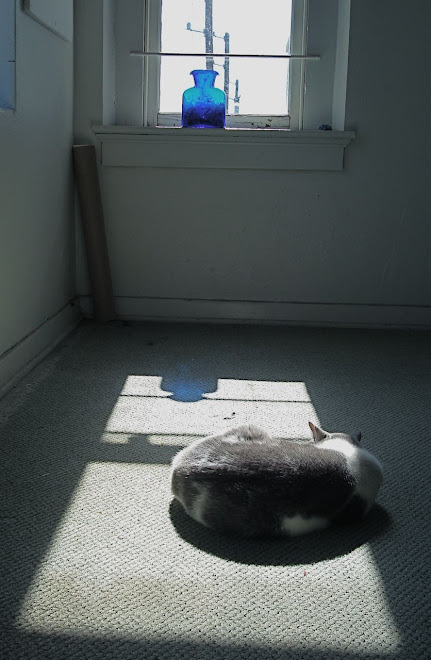
November 20, 2008
How does color set a mood? The soft gray and white of the carpet, the cat Marshall, and the sunlit window contribute to to the sense of calm repose. What does blue mean to you or me? We all have symbolic associations for colors; some based on personal experience and some instilled culturally.
The cobalt blue of the vase provides a point and counterpoint to the composition, in addition to providing elements that balance.
Keeping the cat in the lower third of the composition weights the image and is another visual door into the picture world.
November 19, 2008
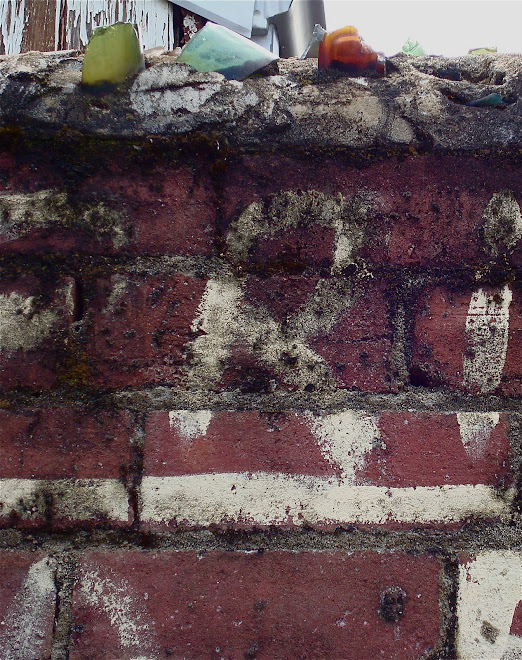
November 19, 2008
This picture tells several stories. It references the human desire to order the world around us - the lettering on the wall establishes the alley as a No Parking zone, and the broken glass- jutting out at the top - is another message of fear and frailty. Whoever lives behind this wall wants to be left alone.
But there is beauty in the contrast of the rough brick surface and the smooth translucency of the broken glass bottles. A contrast of textures makes for an interesting composition. And the abstract nature of the printed letters against the structure of the bricks would be worth emulating in another sort of composition.
November 18, 2008
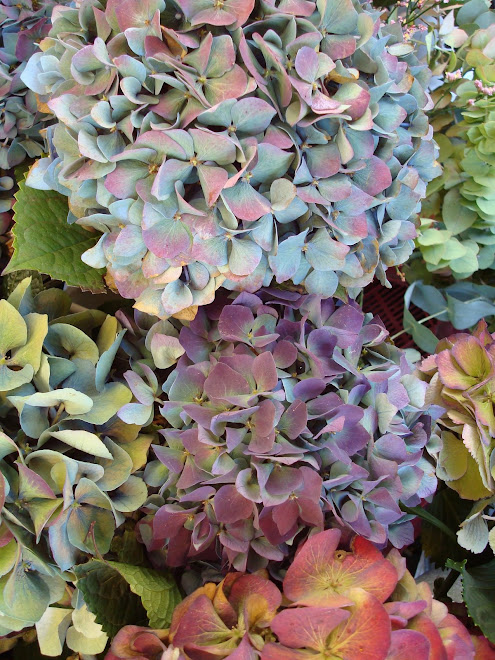
November 18, 2008
The Hydrangeas offer a lesson in the effective use of color. The pale blue and lavender are roughly the same value, so they balance each other beautifully. I am challenged to mimic that combination of analogous colors on silk Habotai!
This photograph would be considered beautiful even without the red-orange and yellow flowers at the bottom. But the addition of the complements to the blue and purple creates a focal point and generates some nice contrast because of the complementary pairing. And imagine how different this composition would be, were the red-orange and yellow at the top instead of at the bottom. The current placement adds important visual weight.
November 17, 2008
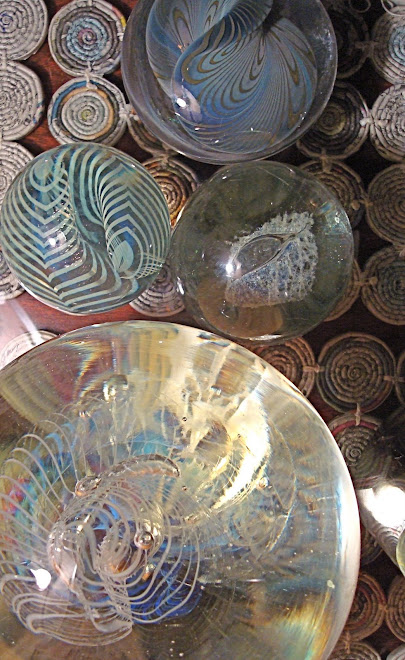
November 16, 2008
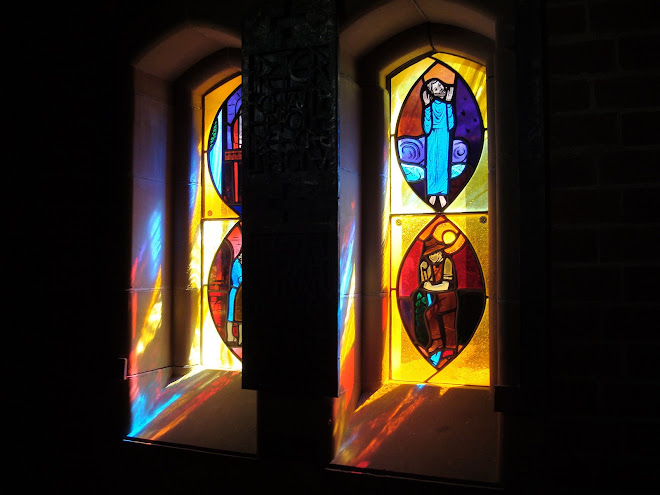
Being and Non-being

Substance and Light
November 16, 2008
We join spokes together in a wheel,
but it is the center hole
that makes the wagon move.
We shape clay into a pot,
but it is the emptiness inside
that holds whatever we want.
We hammer wood for a house,
but it is the space inside
that holds whatever we want.
We work with being,
but non-being is what we use.
Tao te Ching; Verse 11
Stephen Mitchell translation

